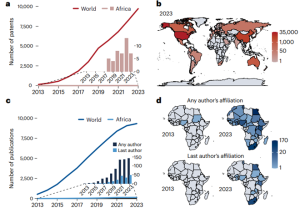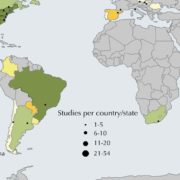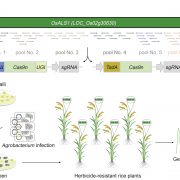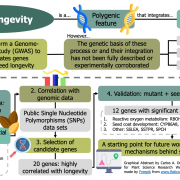Making genome editing a success story in Africa
 The introduction of CRISPR-Cas technology in 2012 marked a significant advancement in global genome editing, yet its potential remains largely untapped in Africa, where it could address crucial challenges in agriculture, public health, and medicine. However, several obstacles hinder its full realization, as addressed in this article by Abkallo et al. These include regulatory uncertainty, limited access to laboratories, equipment, reagents, and overall funding. Additionally, there is a shortage of skilled professionals and insufficient public support, resulting in a lack of political will for change. To overcome these challenges, various solutions have been proposed. These include establishing incentive programs to retain talent, increasing public awareness and education to facilitate informed decision-making, developing GMO regulatory frameworks and harmonizing them across the continent, and encouraging private investment. Furthermore, funding from global bodies such as the World Health Organization should be utilized to establish infrastructure suitable for genome-editing technologies. By implementing these measures, Africa can unlock the transformative potential of genome editing, fostering innovation and development throughout the continent. (Summary by Villő Bernád) Nature Biotech. 10.1038/s41587-024-02187-2
The introduction of CRISPR-Cas technology in 2012 marked a significant advancement in global genome editing, yet its potential remains largely untapped in Africa, where it could address crucial challenges in agriculture, public health, and medicine. However, several obstacles hinder its full realization, as addressed in this article by Abkallo et al. These include regulatory uncertainty, limited access to laboratories, equipment, reagents, and overall funding. Additionally, there is a shortage of skilled professionals and insufficient public support, resulting in a lack of political will for change. To overcome these challenges, various solutions have been proposed. These include establishing incentive programs to retain talent, increasing public awareness and education to facilitate informed decision-making, developing GMO regulatory frameworks and harmonizing them across the continent, and encouraging private investment. Furthermore, funding from global bodies such as the World Health Organization should be utilized to establish infrastructure suitable for genome-editing technologies. By implementing these measures, Africa can unlock the transformative potential of genome editing, fostering innovation and development throughout the continent. (Summary by Villő Bernád) Nature Biotech. 10.1038/s41587-024-02187-2









